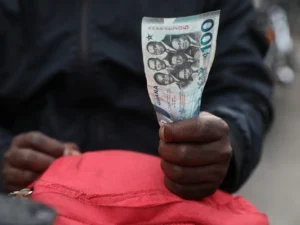Tourism in Ghana is growing, and with it, so are the opportunities for both memorable experiences and occasional disappointments. While Ghana is widely praised for its warmth, culture, and value for money, there are also situations where travelers may find themselves overpaying, misled, or inconvenienced—especially if it’s their first time.
This guide offers instructive, experience-based advice on how to avoid the most common tourist traps in Ghana. It draws directly from the habits of frequent travelers who’ve learned how to navigate Ghana with both enjoyment and savvy.
1. Don’t Exchange Currency on the Street
The Trap
Street money changers often promise better rates than banks or forex bureaus. But these transactions are risky and frequently involve short-changing, counterfeit notes, or sleight-of-hand tricks.
What to Do Instead
- Use licensed forex bureaus found in malls, airports, or commercial centers.
- Exchange a small amount at the airport, then compare rates in town.
- Avoid anyone offering “special rates” in taxis or on the street.
- ATMs from reputable banks (like Ecobank, Stanbic, or GTBank) offer the safest way to access local currency if your card works in Ghana.
Tip
Check the day’s exchange rate on the Bank of Ghana’s website or with trusted forex apps before exchanging money.
2. Skip the “Official Tour Guide” Who Approaches You at Attractions
The Trap
At major sites like Cape Coast Castle, Kakum National Park, or Kwame Nkrumah Mausoleum, unsolicited individuals may approach you offering guided tours. Some are knowledgeable, but many are unauthorized and demand high tips after casual interactions.
What to Do Instead
- Ask for a registered guide at the ticket booth or information desk.
- Request pricing before the tour begins and confirm if tips are expected.
- Visit major sites during peak hours when management is actively supervising.
Tip
If a guide insists on joining uninvited, politely decline and walk away. Don’t feel pressured out of politeness.
3. Be Cautious of Street Vendor Pressure
The Trap
In busy tourist zones or roadside stops, you may be surrounded by street vendors selling beads, paintings, or snacks. Some are genuinely selling goods, but others employ high-pressure tactics and quote inflated prices—especially once they identify you as a foreigner.
What to Do Instead
- Avoid buying immediately after arriving at a location or stepping out of a car.
- Learn to say “No, thank you” firmly but respectfully.
- When interested, ask for the price upfront and negotiate calmly—locals expect bargaining.
Tip
It’s okay to browse and walk away. You don’t owe a purchase just because someone speaks to you or hands you an item.
4. Watch Out for “Friendly Locals” with Motives
The Trap
Some locals—especially in Accra or Cape Coast—may approach tourists with offers to show them around, take them to a “hidden spot,” or invite them to their family’s home or craft shop. These encounters often end in a request for money, pressure to buy something, or even an inflated bill at a bar or restaurant.
What to Do Instead
- Trust your instincts. If something feels too convenient, it usually is.
- Be cautious with new acquaintances who insist on walking you somewhere.
- If you want a local experience, arrange it through your hotel or a vetted guide service.
Tip
Decline invitations politely: “Thanks, I already have plans,” or “I’m meeting someone.” It keeps things respectful but firm.
5. Confirm Taxi Fares in Advance
The Trap
Unlike ride-hailing apps, most taxis in Ghana do not use meters. Unsuspecting tourists are often quoted 2–3x the local price, especially when picked up at airports, bus terminals, or popular spots.
What to Do Instead
- Always negotiate the fare before entering the vehicle.
- Ask locals (or hotel staff) what the fare should be before leaving.
- Use Uber, Bolt, or Yango for accurate pricing and security in cities.
Tip
Don’t feel bad walking away if a taxi driver insists on a high price. There are always alternatives.
6. Research “Cultural Shows” or Events Before Paying
The Trap
In areas like Kumasi or Cape Coast, you might be invited to see a “cultural performance” or “local festival,” only to find that it’s a staged event meant to collect donations or tips from unsuspecting tourists.
What to Do Instead
- Ask where the event is being held and look it up online or ask your accommodation staff.
- Confirm if it’s a public event or a private, staged experience.
- If attending, agree on any fees in advance and bring small denominations for optional tipping.
Tip
Genuine festivals (like Homowo, Aboakyer, or Panafest) are listed on TouringGhana.com or VisitGhana.
7. Avoid “Special Craft Shops” with Exorbitant Prices
The Trap
Some drivers, guides, or new friends may take you to shops where they earn commission. You may find beautiful items, but often at heavily inflated prices compared to open markets.
What to Do Instead
- Visit craft villages like Art Centre in Accra, Kumasi Cultural Centre, or Tafi Atome Craft Market.
- Compare prices across stalls and negotiate before purchasing.
- Be cautious if a driver insists on stopping at “just one place.”
Tip
If a seller starts with “This is a special price just for you,” it’s likely not. Ask three different vendors the price for the same item to know what’s fair.
8. Be Smart with SIM Card and Internet Deals
The Trap
Tourists are sometimes sold inactive or overpriced SIM cards by street vendors, or misled into buying inflated internet bundles.
What to Do Instead
- Buy your SIM card at official MTN, Vodafone, or AirtelTigo outlets.
- Present your passport and register legally.
- Use the USSD codes or official apps to buy internet packages directly.
For more tips, refer to: How to Stay Connected in Ghana – SIMs and WiFi
9. Don’t Fall for Sob Stories That Lead to Money Requests
The Trap
Some individuals—especially in urban areas—approach tourists with heartfelt stories involving lost bus fare, stranded children, or family emergencies. These are often well-rehearsed scams.
What to Do Instead
- Offer help in kind, not cash, if you’re genuinely moved (e.g., buying a meal instead of giving money).
- Be cautious with repeat encounters—the same person may appear again in different areas with the same story.
Tip
Ghana is a place of real need, but organized begging targeting tourists is common. Choose to give meaningfully through registered charities or community programs.
10. Trust But Verify—Even at the Hotel
The Trap
Hotels may offer to arrange taxis, excursions, or airport pickups, but prices are not always competitive. Some staff may receive incentives to promote specific vendors.
What to Do Instead
- Ask for pricing details in advance.
- Cross-check tour prices online or through TripAdvisor, Viator, or GetYourGuide.
- Use hotel recommendations as a starting point, not the final choice.
Final Travel Smarts
Avoiding tourist traps in Ghana doesn’t mean being suspicious or closed off—it simply means being informed, observant, and confident. Frequent travelers agree on the following best practices:
- Do your research before committing money or time.
- Ask locals or expats for honest advice—Ghana has many Facebook travel groups worth joining.
- Take your time—rushing makes you more vulnerable to scams.
- Keep small change and carry what you need for the day to reduce exposure.
- Stay humble and polite, even when saying no.
Ghana is a destination full of genuine encounters, but like anywhere, it’s best enjoyed with a bit of street smarts. With these strategies, you can protect your wallet, avoid frustration, and focus on the incredible culture, history, and warmth that Ghana offers every traveler.




